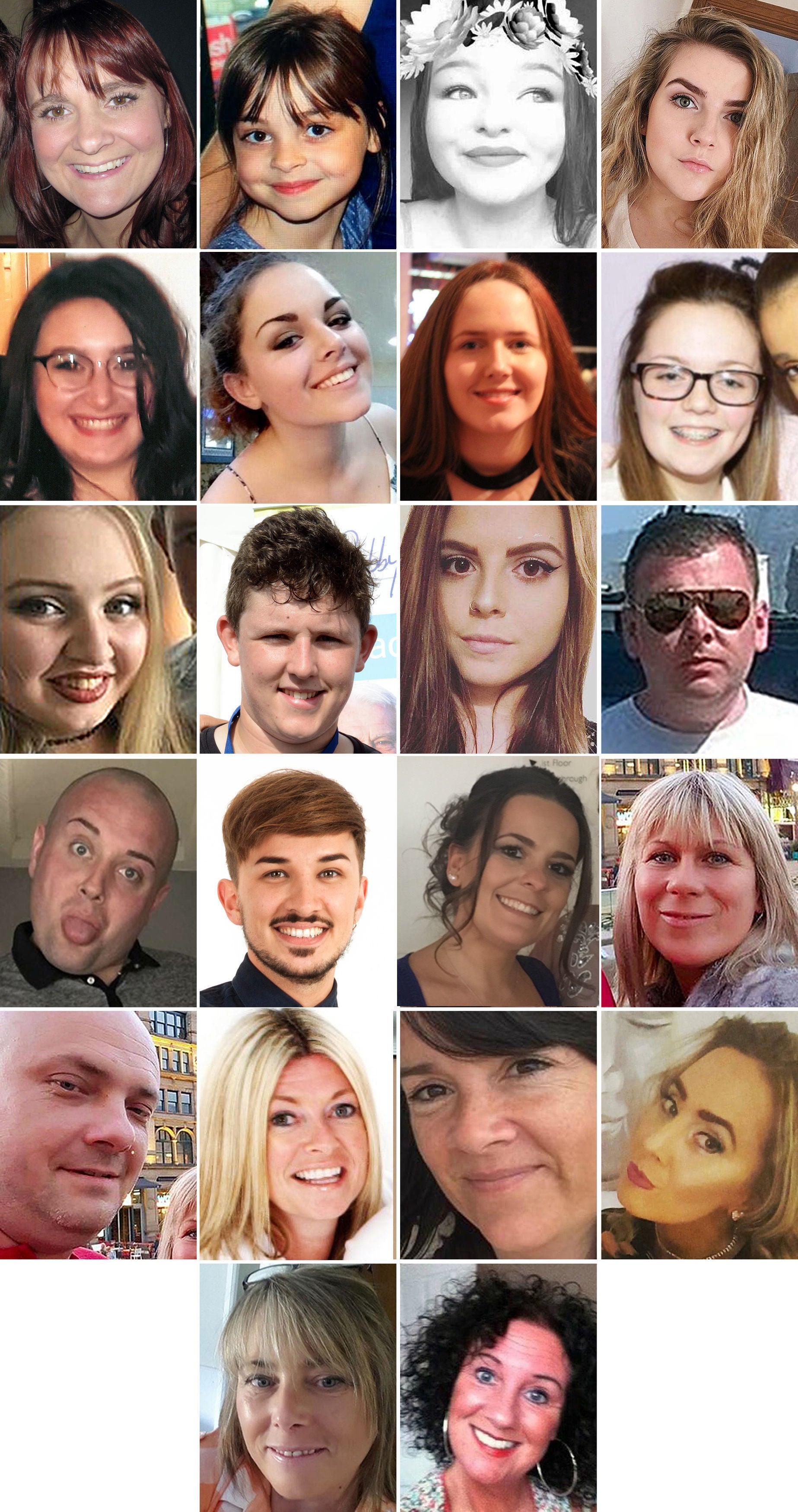Rishi Sunak under mounting pressure to speed up law to protect venues against terror attacks
Exclusive: Mother of Manchester bombing victim tells prime minister delay risks ‘another successful attack against a premises that could have been protected’
Your support helps us to tell the story
This election is still a dead heat, according to most polls. In a fight with such wafer-thin margins, we need reporters on the ground talking to the people Trump and Harris are courting. Your support allows us to keep sending journalists to the story.
The Independent is trusted by 27 million Americans from across the entire political spectrum every month. Unlike many other quality news outlets, we choose not to lock you out of our reporting and analysis with paywalls. But quality journalism must still be paid for.
Help us keep bring these critical stories to light. Your support makes all the difference.
Rishi Sunak is under mounting pressure to bring forward promised protections against terror attacks in venues and public places.
The mother of Manchester Arena victim Martyn Hett, Figen Murray, has been campaigning for a law in his name for four years, with the backing of victims of terrorism, former senior counter-terror officers and ex-home secretaries.
The government committed to the law in its 2019 election manifesto and announced the bill in last year’s Queen’s Speech, but it remains in draft form amid debates about its scope.
In a letter to the prime minister, seen by The Independent, Ms Murray said the law was “not progressing as speedily as the threat from terrorism demands”.

“As counter-terrorism leaders said to you in December 2022, the risks of not acting exposes your government to the invidious consequences of another successful attack against a premises that could have been protected,” the letter warned.
“This legislative approach helps you fulfil your primary duty of protecting the citizens of the UK, something that you have our enduring support for.”
Former home secretary Priti Patel is among the law’s supporters, and joined six other previous holders of the office including Sajid Javid, Jack Straw and David Blunkett calling for it to be implemented swiftly in November.
Ms Patel said the government should be “grateful for the tireless commitment” from Ms Murray and other campaigners.
“The public sentiment is clear that the majority want tougher measures to protect the public from harm,” she told The Independent.
“It is the most important duty of any government to ensure the safety of its citizens and I know how hard it is when there are individuals who are willing to attack unknown civilians for a twisted cause.
“That's why the Protect Duty must continue to be championed and delivered by the government.”

Alluding to the looming general election and a raft of promised laws yet to be considered by parliament, Ms Murray said the bill’s backers recognised that it was an “important year for your government”.
The letter, which was also signed by Brendan Cox, the widow of murdered MP Jo Cox, and former senior counter-terror police officer Nick Aldworth, defended the Draft Terrorism (Protection of Premises) Bill after a critical round of parliamentary scrutiny.
Last month, MPs on the Home Affairs Committee found the draft law could force venues such as village halls, restaurants and small businesses to close and said there was no evidence that the proposed measures “will have any effect on reducing terrorist threats”.
Ms Murray said campaigners believed that the approach was “right”, and that to heed calls to restrict minimum security requirements to large venues only would “be an invitation for terrorists to continue attacking and plotting to attack smaller locations where our citizens live and socialise”.
She urged Mr Sunak to “fulfil your commitment”, weeks after home secretary Suella Braverman warned that terror attacks were becoming “increasingly unpredictable and harder to detect” in the UK.
“In direct response to the Manchester Arena bombing, we will ensure public venues are better prepared and protected against terrorist attacks,” Ms Braverman vowed in a speech last month.
“In honour of Martyn Hett, who was tragically killed in the attack, we will pass Martyn’s Law.”
It has been backed by the chair of the Manchester Arena public inquiry, who called for the government to ensure a “high standard of protective security” for large venues and for “rigorous and robust enforcement”.
“Doing nothing is not an option,” Sir John Saunders said after finding numerous opportunities to prevent the attack or reduce the death toll were missed.
The draft bill would apply different standards to venues depending on their size, with a “standard duty” for public places with a capacity of between 100 and 800 people, and an “enhanced duty” for larger premises.
The Home Affairs Committee found that the proposals would “place a significant and disproportionate burden on smaller venues, while failing to ensure adequate safety measures at all public events at risk of terror attacks”.
It called for the government to first impose the duty on large venues only, and review the impact before extending it.
A Home Office spokesperson said: “The government is committed to improving security at public venues and to introducing Martyn’s Law as soon as parliamentary time allows.”
“The Martyn’s Law campaign have tirelessly campaigned for this legislation and their continued input and support is helping the government to deliver a strong bill.
“The government welcomes a range of views to ensure consultation and pre-legislative scrutiny on proposals for draft legislation. We are carefully reviewing all recommendations to ensure the implementation of Martyn’s law is properly understood and effective.”
Subscribe to Independent Premium to bookmark this article
Want to bookmark your favourite articles and stories to read or reference later? Start your Independent Premium subscription today.




Join our commenting forum
Join thought-provoking conversations, follow other Independent readers and see their replies
Comments